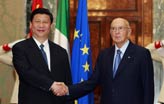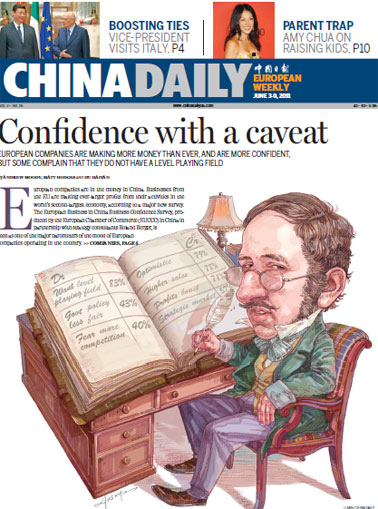Op-Ed Contributors
Exchanges will build trust
Updated: 2011-06-08 07:56
By Tao Wenzhao (China Daily)
China and the US should enhance military interaction in Asia-Pacific region to promote peace and development
At the just-concluded Shangri-La Dialogue, the 10th International Institute for Strategic Studies Asia Security Summit held in Singapore, the security policies the United States will adopt in Asia-Pacific, the kind of security strategy China will embrace and how the two countries will develop their military ties were at the top of the agenda.
At the summit, US Defense Secretary Robert Gates sent an unequivocal message that the US will not weaken security commitments to Asia-Pacific countries, despite the fact that Washington is plagued by a gaping fiscal deficit, has yet to completely extricate itself from the wars in Iraq and Afghanistan, and faces lingering political turbulence in some Arab and North African countries that could pose challenges to its role in the Middle East.
"We are evaluating a range of options, including increasing our combined naval presence and capabilities to respond more rapidly to humanitarian disasters," Gates said, adding the US navy will increase its port calls and multilateral activities with other countries to "not only broaden and deepen our relationship with friends and allies, but help build partner capacity to address regional challenges".
Such remarks were compatible with the "return to Asia" strategy repeatedly expounded by the Obama administration, which reflect Washington's desire to strengthen its waning dominance in the Asia-Pacific region and consolidate security alliances with its allies.
Over the past decades, China's rapid development has brought enormous opportunities for the entire Asia-Pacific region. China is now the largest trading partner of Japan, the Republic of Korea, the Association of Southeast Asian Nations (ASEAN) and Australia. It is expected that such economic interdependence between China and other regional countries will further deepen.
The Chinese Defense Minister, Liang Guanglie, expressed China's desire to unwaveringly promote security cooperation with other regional countries and adhere to its long-cherished peaceful development path and defensive military policy at the summit. He also expounded the country's desire to maintain regional peace and stability through security cooperation.
Trust stems from exchanges, Liang said. China believes that practical policies and measures aimed at implementing its peaceful development path, together with the country's efforts to increase and strengthen exchanges and cooperation with neighboring countries in the region, will gradually ease any misgivings and worries that neighboring countries may have and help establish long-term, friendly win-win relations.
During his meeting with Gates, Liang proposed China and the US regard each other as cooperative partners instead of rivals and that the two militaries strengthen institutionalized dialogue and exchanges and deepen cooperation in humanitarian relief, counter-piracy and non-traditional security fields.
Gates too expressed the US' desire to develop a healthy, stable, reliable and sustainable relationship between the two militaries. He said the two countries should strengthen cooperation in the fields where they share common interests and maintain dialogue in the fields where they disagree in a bid to demonstrate to the whole world the benefits brought by cooperation between the two big powers.
Sino-US military links have undergone a series of ups and downs over the past year, as have the broader ties between the two countries. During President Hu Jintao's visit to the US, Hu and US President Barack Obama reconfirmed cooperation as the bedrock of bilateral ties while admitting the existence of disputes between the two countries. The two leaders also agreed to take measures to prevent bilateral disputes from developing into confrontation.
Different from their ever-deepening economic interdependence, Sino-US military ties have always been a fragile part of bilateral relations. Military ties have usually suffered most if something sours relations between the two countries and they are usually slow to recover. Given their mutual mistrust in the security and strategic field, China and the US should strengthen bilateral military ties as an important way to improve their bilateral relations.
During his recent visit to the US, Chen Bingde, chief of the General Staff of the People's Liberation Army, said that China does not have the military ability, the cultural tradition or the intent to challenge the dominant status of the US, a stance stressed again by Defense Minister Lie Guanglie at the Shangri-La Dialogue in Singapore.
As two big powers, China and the US should enhance military interaction in the Asia-Pacific region, enhance mutual trust and ease mutual misgivings in a bid to develop a more peaceful and secure region and create a good environment for regional development.
The author is a senior research scholar with the Center for US-China Relations at Tsinghua University.
E-paper

Harbin-ger of change
Old industrial center looks to innovation to move up the value chain
Chemical attraction
The reel Mao
Improving app-iness
Specials

Vice-President visits Italy
The visit is expected to lend new impetus to Sino-Italian relations.

Birthday a new 'starting point'
China's national English language newspaper aims for a top-notch international all-media group.

Sky is the limit
Chinese tycoon conjures up green dreams in Europe with solar panels
